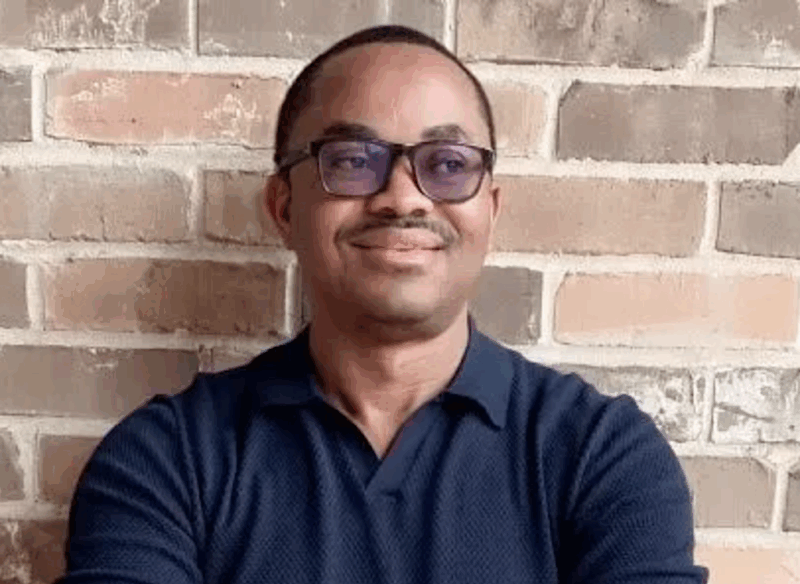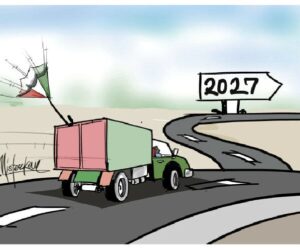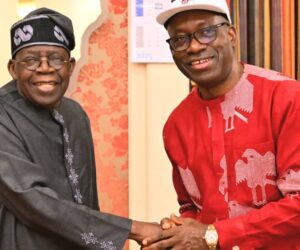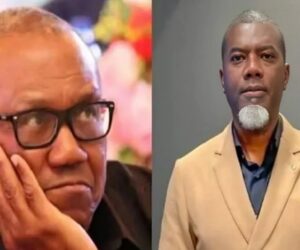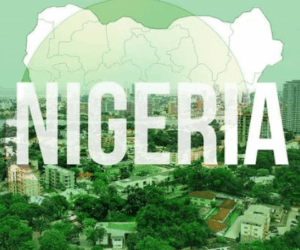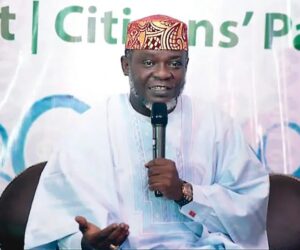A few days ago, a haunting image surfaced on my Facebook feed that I cannot unsee; sun-bleached human remains lying half-buried in the arid vastness of the Sahara Desert. No plaques. No mourners. Just a silent testament to lives extinguished by thirst, exhaustion, and despair. These were not the casualties of Africa’s intractable wars or natural catastrophe; they were migrants, ordinary men and women from the motherland, chasing the faint shimmer of opportunity across unforgiving sands. Their destination? Europe. Their ambition? Survival. Their fate? Death.
Yet their story is neither isolated nor anomalous. It is the refrain of a continent hemorrhaging its most vulnerable in a desperate bid for escape. Between 2020 and May 2024, the International Organization for Migration (IOM) documented over 1,180 confirmed deaths during Sahara crossings alone, a figure widely accepted as a severe underestimation, given the desert’s vast, lawless expanses. The Sahara, it turns out, is not just a desert; it is an open-air graveyard, an unmarked mass tomb for the continent’s discarded hopes.
Beyond the desert lies another abyss: the Mediterranean. Since 2014, more than 23,000 migrants have drowned or vanished in its depths. In 2023, a record 8,565 migrant deaths were reported globally, only to be eclipsed in 2024, which saw 8,938 deaths, including 2,452 in the Mediterranean and 2,242 across Africa. Each number, a life once animated by hope. Each statistic, a damning indictment of systemic failure.
Nowhere is this more acute than in Nigeria, Africa’s most populous nation. In 2017, the Nigerian Immigration Service disclosed that over 10,000 Nigerians perished in a mere five-month span while attempting to flee. Nearly half drowned in the Mediterranean; the rest succumbed to the desert’s merciless embrace. Such figures, while staggering, cannot begin to encapsulate the sorrow of entire communities emptied of their youth.
These tragedies are not acts of nature. They are the downstream consequences of political dysfunction, endemic corruption, and moral bankruptcy among the continent’s ruling class. The culprits are not the sandstorms or the waves, but the men in tailored suits who embezzle public funds, shutter schools, neglect hospitals, and convert hope into a luxury good affordable only to the few.
From remote desert tracks to the deep blue, African bodies continue to vanish.
The popular imagination often paints migration as an act of ambition or wanderlust. But for most Africans who flee, it is not a choice; it is an escape. Their departure is not toward a dream, but away from a nightmare.
Africa is not barren. It is resplendent with potential; fertile land, vibrant cultures, immense mineral wealth, and a youthful population eager to build. But all of this lies buried beneath the weight of bad leadership. Economists often talk about Africa’s resource-curse. Our governments, more often than not, function as extraction machines: siphoning resources, concentrating power, and weaponizing poverty. Those who can flee, do. Those who cannot, endure. And the few who dare to dissent are silenced, sometimes by propaganda, sometimes by prison, sometimes by the grave. Each corpse is a casualty of failed leadership. Each disappearance a damning indictment.
The Somali-British poet Warsan Shire, herself born to refugee parents, gave haunting voice to this predicament:
“No one leaves home unless home is the mouth of a shark.” It is a line that cuts through policy debates and border politics with surgical clarity. Shire, whose work crystallises the trauma of exile, did not craft a metaphor. She described a reality. A house that devours its children is not a home; it is a trap.
Born in exile to Somali refugees who fled a crumbling nation in the grip of civil war, she grew up in London, between worlds, between identities. Her lyrical poetry speaks not only of displacement but of the silent traumas inherited through survival. Her voice gives flesh to the forgotten. And in this line, she crystallizes what policymakers and pundits often miss: migration is rarely about choice. It is about escape.
What deepens the tragedy is the reaction from the world beyond. Western nations, many of which benefited directly from Africa’s colonization and underdevelopment, now erect walls and weaponize bureaucracy to keep Africans out. They fund border militias in North Africa, criminalize rescue missions in the Mediterranean, and deport asylum seekers en masse, often to countries they helped destabilize through economic pillaging or geopolitical gamesmanship.
A new kind of apartheid is emerging, an apartheid of movement. Capital may roam freely across continents, but human beings, especially those with dark skin and empty pockets, are increasingly treated as threats rather than seekers of refuge.
Some African leaders applaud these developments, hoping to gain international favor. They criminalize migration and cheer draconian repatriation policies. Yet they do nothing about the root causes; joblessness, insecurity, hopelessness. They speak of patriotism and sovereignty while their own children school abroad and their bank accounts flourish in Switzerland. Is this the price of hope? Must a young person choose between unemployment and the likelihood of dying alone in the desert? The question is no longer rhetorical. It is urgent.
And still, the bodies pile up.
The silence from the corridors of African power is deafening. Few presidents visit the families of the fallen. Few parliaments debate the exodus of their citizens. Few religious leaders lament the moral rot that sends the young into the jaws of the sea. The dead remain nameless. Their memories fade. Their dreams, once vibrant, are reduced to cautionary tales or forgotten entirely.
But if we allow this hemorrhaging to continue unchecked, if we resign ourselves to being a continent whose best minds must flee to flourish, then we are complicit in our own erasure.
Africans are not dying because they are lazy or unskilled. They are dying because their nations are being hollowed out by misrule. The continent’s best minds are in exodus. The most daring risk death to leave. What remains is a vicious cycle of dependency and decay. No amount of foreign aid or charity will fix this. Only leadership that prioritizes human dignity and sustainable development can.
We cannot mourn the victims of the desert and sea without confronting the systems that produced their deaths. Africa must cultivate a new political ethos, one that privileges merit over mediocrity, vision over venality, nationhood over narrow ethnic loyalties. It must invest in education, health, infrastructure, and inclusive growth. It must dismantle the networks of rent-seeking that turn public office into private fiefdom.
And it must do so urgently. For every reform delayed, a child drowns. For every budget looted, another body disappears into the sand.
Migration, in and of itself, is not a tragedy. Human beings have always moved, always sought better. But migration born of desperation, of countries collapsing under the weight of kleptocracy, is a moral emergency.
Let us not feign ignorance. The next time someone decries “illegal migration,” remind them: these are not invaders. They are survivors of systems that failed them.
There is a profound tragedy in the fact that the African continent, whose riches helped build the modern world, cannot now offer its youth the basic dignity of hope. If that is not a form of historical theft, what is? Warsan Shire’s words reverberate still: “No one leaves home unless home is the mouth of a shark.”
Let us heed the metaphor not as poetry but as prophecy. Let us transform our nations so they no longer bite their children. Let us bury not our youth, but the systems that betray them.
Osmund Agbo is a US-based medical doctor and author. His works include Black Grit, White Knuckles: The Philosophy of Black Renaissance and a fiction work titled The Velvet Court: Courtesan Chronicles. His latest works, Pray, Let the Shaman Die and Ma’am, I Do Not Come to You for Love, have just been released. He can be reached@ [email protected]

